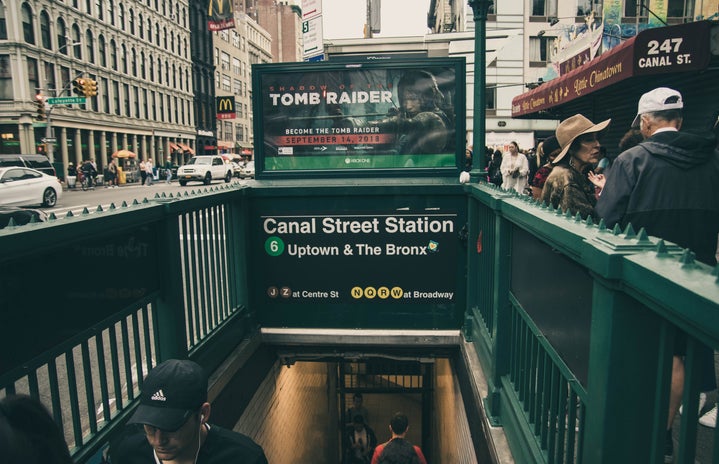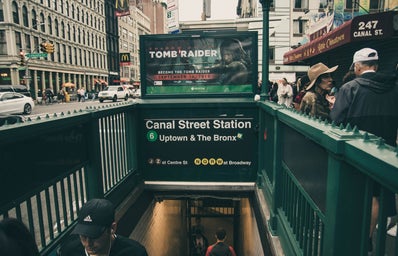Community displacement is a tale as old as time in the United States of America. The country itself was founded on the displacement of Indigenous Americans using the labor of displaced and enslaved Africans. Over time, as civil rights were fought for and acquired, segregation efforts kept communities of color as far away from affluence as legally permitted. Today, a different battle ensues.
In recent times, new development proposals have placed Asian communities at risk of erasure with the threat of gentrification. In July, the Philadelphia 76ers announced a proposal to build a new $1.3 billion arena a block away from the Chinatown gateway arch.
This is not the first time Philadelphia’s Chinatown has been at risk for gentrification. In 2000, proposals for a new baseball arena for the Phillies were struck down that would have been located outside the doors of Chinatown, as well as a 2008 proposal for a slot-machine casino. Since 1958, Philadelphia’s Chinatown has lost 25 percent of its area due to public projects such as the creation of the Independence Mall, an expressway and a convention center.
Gentrification of Asian communities is not a rare phenomenon either. In 1997, the Washington Capitals hockey team and the Washington Wizards basketball team relocated to a new home in D.C.’s Chinatown. Census numbers show that in 1990, 66 percent of people who lived in the D.C. Chinatown area identified as Asian American. As of 2020, the numbers dropped to 18 percent in the two tracts that make up what is left of D.C.’s Chinatown. Despite increased foot traffic and revitalized real estate, the D.C. Chinatown community experienced rent spikes and the loss of businesses to chain restaurants that would force them to leave the area. A community with over 3,000 Chinese residents in 2010 shrunk to around 300 several years ago.
“You have to think about how Chinatown was created. We weren’t welcome in other neighborhoods,” says Wei Chen, the community engagement director for Asian Americans United. The existence of ethnic enclaves such as Chinatowns is the result of exclusion laws that created segregated communities. As Chinese immigrants arrived in waves from 1850-1870 to the American West, numerous anti-Chinese movements spiked, including massacres, riots, evictions and legal restrictions on where Chinese immigrants could live and work.
Home to immigrants, the elderly and the poor, Chinatown neighborhoods are amongst the poorest neighborhoods within their respective cities. In New York City (NYC), Chinatown as part of the Lower East Side has a median household income of $46,000 with 26.5 percent of its residents living in poverty. However, the location of Chinatown has become increasingly attractive for luxury hotels, condos, and corporate businesses. The arrival of these big businesses raises property values and outprices the working-class families and small businesses until they can no longer afford to live and work in the place they call home.
NYC Chinatown itself is currently battling against plans for a 29-story high “mega-jail” that would replace Rikers Jail. According to the city, the location of the new jails that would replace Rikers were selected based on their proximity to courthouses, social services and the detainees’ families.
Plans for the construction of the new mega jail pose a threat to displace more residents along with pollution and health hazards that would arise from the years-long construction process. According to the American Community Survey, the Asian population within Chinatown and the nearby Lower East Side neighborhood dropped by more than 10,000 from 2006 to 2020.
Chinatowns are not the only ethnic enclaves suffering from gentrification. On the West Coast, small businesses in Los Angeles’ Little Tokyo are grappling with increasing rent prices due to property flippers and public projects. Legacy businesses such as Little Tokyo Cosmetics — a 50-year-old legacy business credited with introducing Japanese beauty brand Shiseido to the US — closed its doors in Japanese Village Plaza in the same week when Mokuyobi Threads announced their move in. Mokuyobi Threads is an American apparel brand that sells a collection of tees and backpacks under a misspelled Japanese name and appropriated Tokyo influences.
Outside of the United States, Chinatown in Toronto experiences the same threats of gentrification from land developers and the government itself. Two-thirds of the original Chinatown was lost in favor of a new City Hall in 1958, along with the construction of Nathan Phillips Square. Politicians considered removing the remaining one-third of Chinatown that was left entirely, as well as the name before residents formed a Save Chinatown Committee to prevent measures from proceeding.
Florida State University sophomore and Toronto native Coco Li reflects on the changes in Toronto’s Chinatown since her family’s business Kim’s Gourmet, closed permanently due to the 2008 recession: “They lost pretty much everything— all of their savings, everything to make a living. We lost the restaurant and housing as well because we lived on the outskirts of Chinatown.” Today, the businesses that occupy the old address of the restaurant include an employment agency, a physiotherapy clinic and an appliance repair shop.
On the widespread consumption of Asian culture, Li shares a frustration that comes with the gentrification of Asian neighborhoods: “They like the product; they don’t appreciate where it’s coming from. That’s exactly why Chinatown is so important. When you go back to Chinatown or really any environment where you don’t feel othered, you really feel at ease.”
Currently, there are pending lawsuits that have halted construction plans for the Rikers replacement jail. The proposed 76ers arena in Center City is still in the developmental process of receiving entitlements and approvals in order to proceed with construction. For now, protesters continue to rally against these development plans in efforts to preserve the communities that were once cultural safe havens.
Want to see more HCFSU? Be sure to like us on Facebook and follow us on Instagram, Twitter, TikTok, YouTube and Pinterest!


